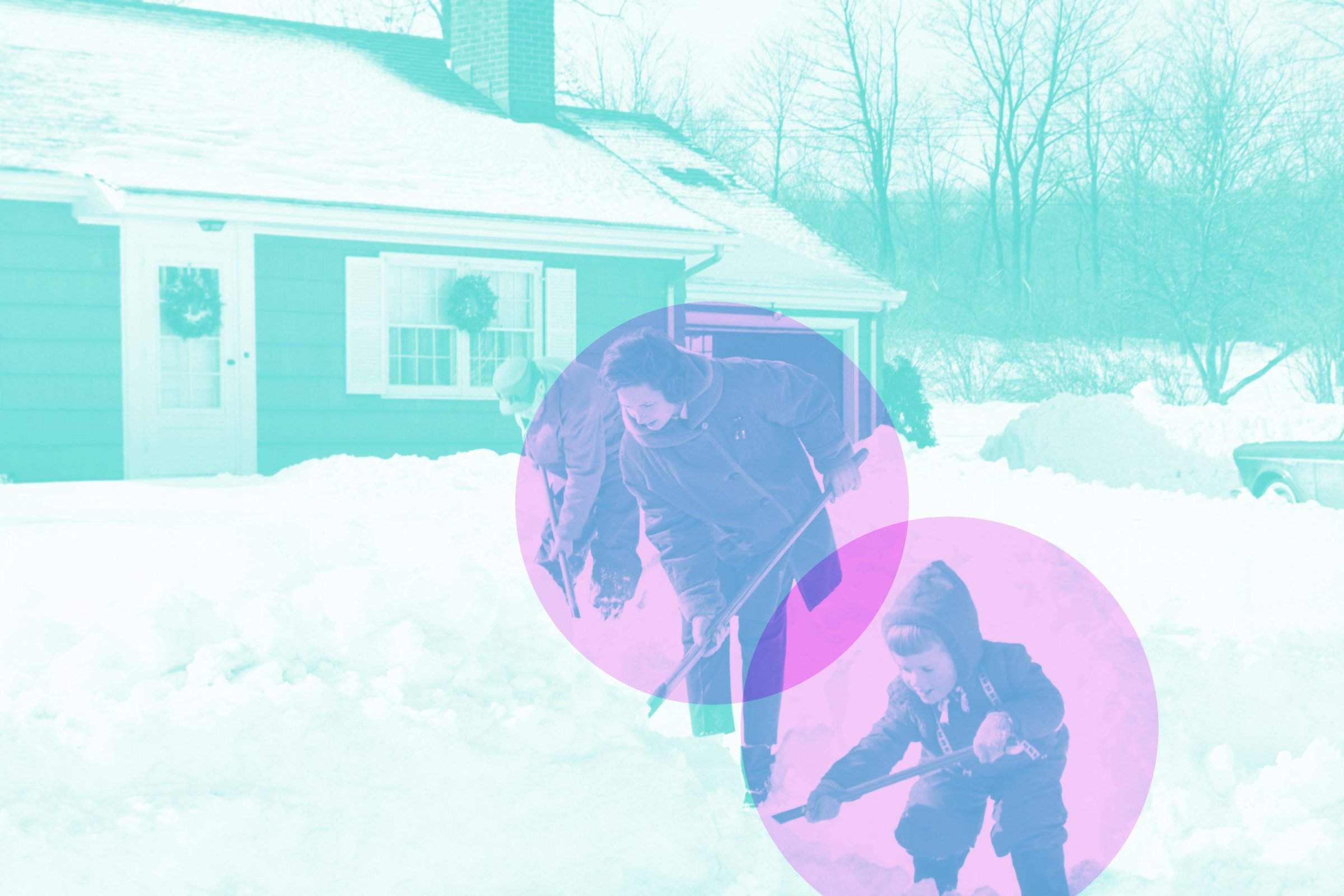
Take caution when shoveling yourself out of a fresh snowstorm: A new study published in the Canadian Medical Association Journal finds that days following heavy snowfall carry a higher risk of heart attack for men.
The study backs up what’s long been suspected in the medical community. “Up to now, there was a theoretical risk that snow shoveling can increase heart attack at a population level,” says Dr. Nathalie Auger, assistant clinical professor of social and preventive medicine at the University of Montreal. “With this study, we are now more certain that snowfall is linked with heart attack in individuals.”
To reach this conclusion, Auger and her co-authors gathered reports of 128,073 hospital admissions and 68,155 deaths from heart attack in Quebec from November through April, every year between 1981 and 2014. They also obtained weather information corresponding to the time frames and regions included in the study.
When they compared the medical and weather data, the researchers found that the most dangerous days occurred immediately following snowfalls. About one third of hospital admissions and deaths due to heart attack occurred on these days, and the risk was even stronger after snowfalls that lasted two to three days.
About 60% of the heart attack cases in the study were in men. On days after snowfalls, men had increased relative risks of being admitted to the hospital or dying—16% and 34%, respectively—compared to other days during the study period. This pattern was true regardless of age, cardiovascular risk factors and other health conditions.
Women, on the other hand, did not appear to be at higher risk after snowfalls than on other days.
Auger says that the findings should be a reminder that people need to be concerned about potential cardiovascular risks, in addition to snow-related falls and automobile accidents. “Snow shoveling is very challenging for the heart, and you should be aware that shoveling is can be a real strain, especially if you overdo it,” she says.
Men who are older or not in top cardiovascular shape should avoid shoveling if they can, she adds, or may want to use a lightweight or ergonomically designed shovel. “If you can’t find someone who’s physically fit to shovel for you, try to be more careful and don’t push yourself too hard,” she adds.
Because the study only looked at trends over time, it is not able to establish a cause-and-effect relationship between snow-related activities like shoveling and heart attacks. The authors note that they do not know whether the people in the study actually shoveled snow, and they have no information about gender-specific shoveling habits, the size of areas shoveled or whether snow was removed manually or with a snow blower.
But they believe that their hypothesis—that men are more likely to shovel after a snowstorm, and that shoveling is responsible for their increased risk of heart attacks—is plausible. It’s also reason for anyone who’s snowed in to approach shoveling with care.
In a commentary published along with the study, Dr. David Alter of the Toronto Rehabilitation Institute and the University of Toronto writes that the physical exertion and cold temperatures associated with shoveling snow set the stage for “an eco-biological-behavioural ‘perfect storm,’” particularly for people who are out of shape or have other heart disease risk factors.
This is the first study to link heart attacks specifically to the day after snowfall, Alter writes, lending more weight to the theory that shoveling is indeed responsible. (He does present another theory, however: Heavy snowfall could make people less likely to seek urgent medical care for heart-related symptoms, he writes, which could also contribute to the day-after spike.)
Auger maintains that shoveling is probably the main reason why the risk of heart attack increases after a snowstorm, but says it’s important to keep heart health in mind all year round. “The best advice is to avoid shoveling,” she says. “But to reduce your risk of heart attack even further, your best bet is to quit smoking, be physically fit, and have a healthy diet.”
More Must-Reads From TIME
- The 100 Most Influential People of 2024
- The Revolution of Yulia Navalnaya
- 6 Compliments That Land Every Time
- What's the Deal With the Bitcoin Halving?
- If You're Dating Right Now , You're Brave: Column
- The AI That Could Heal a Divided Internet
- Fallout Is a Brilliant Model for the Future of Video Game Adaptations
- Want Weekly Recs on What to Watch, Read, and More? Sign Up for Worth Your Time
Contact us at letters@time.com